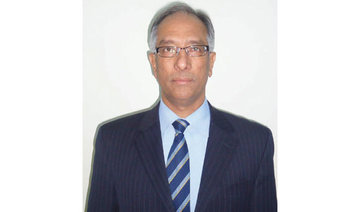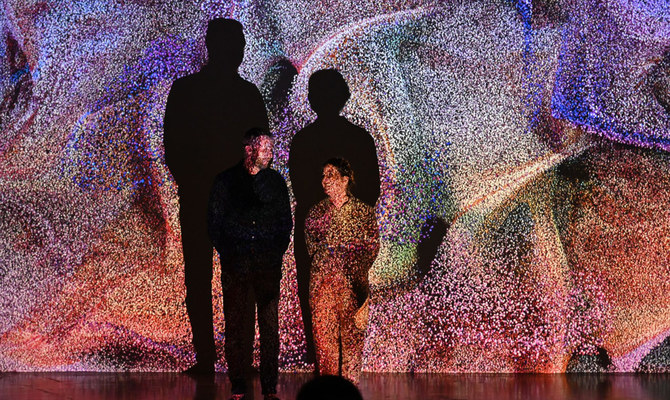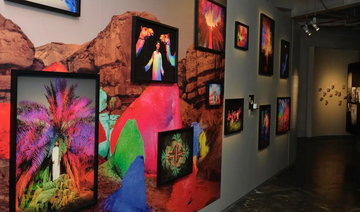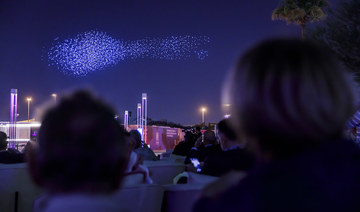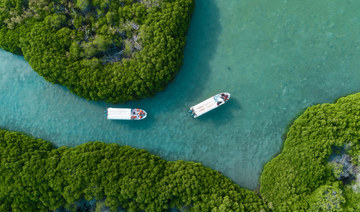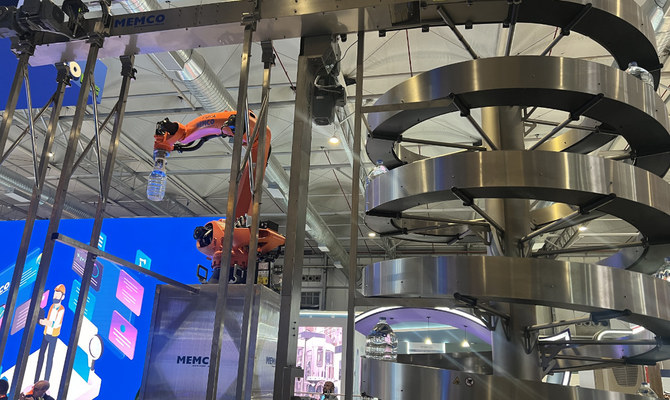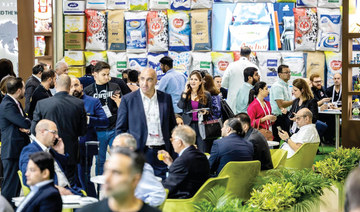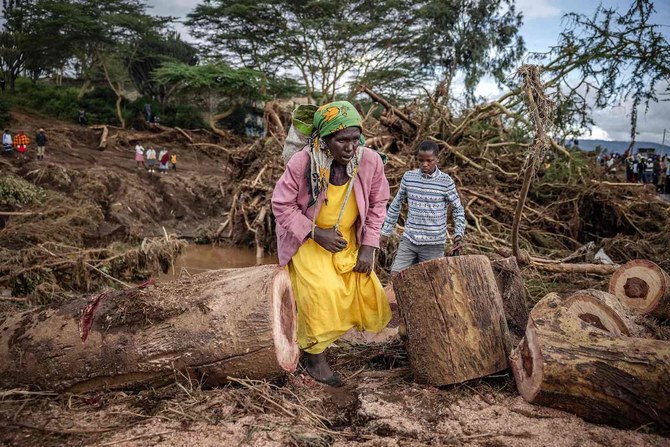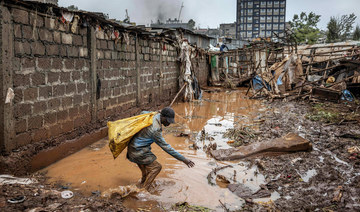RIYADH: The Saudi-Pakistani relationship is a vast and dynamic web of cooperative linkages, age-old bonds of friendship and undertakings, dating from well before the establishment of diplomatic relations and growing continuously year-on-year. Today, the Kingdom and Pakistan maintain close and robust political, military, economic, security and cultural relations, rarely found in the history of global camaraderie.
In fact, Saudi Arabia’s long-standing and comprehensive relationship with Pakistan operates at many levels and in many areas, including trade, governance and values, health, education and culture besides politics and security. The two countries also work together extensively at the international level, within the framework of several bilateral, regional and global organizations including the Organization of Islamic Cooperation (OIC).
Moreover, the Kingdom is the biggest exporter of oil and petroleum products to Pakistan, while Saudi Arabia has been a key market for Pakistani goods and services. No doubt, the two sides sought to develop extensive commercial, cultural, religious, political and strategic relations since the establishment of Pakistan in 1947. Pakistan affirms its relationship with Saudi Arabia as their most “important and bilateral partnership” in the current foreign policy of Pakistan, while working and seeking to further strengthen ties with Saudi Arabia, the country that hosts the two holy mosques in Makkah and Madinah.
The bilateral relationship has grown further since Pakistan joined the Islamic Military Alliance to Fight Terrorism (IMAFT). The IMAFT, created by Saudi Arabia in December 2015 to combat Daesh and other terror groups, has 39 members, including Turkey and Malaysia with a command center in Riyadh.
All these new developments are the result of the frequent political consultations between the leaders and the high-ranking officials of the two countries, and more so between King Salman and Pakistani Prime Minister Nawaz Sharif. The leaders of Saudi Arabia command great respect in Pakistan.
According to a survey, Pakistanis hold the most favorable perception of the Kingdom in the world, with 95 percent of the respondents viewing Saudi Arabia favorably. With one of the largest armies in the world and as the only declared nuclear power in the Muslim world, Pakistan has maintained a unique position and works closely with the Kingdom and other member states of the six-nation Gulf Cooperation Council (GCC) as well as the world at large.
A report released by the Pakistani Embassy said that Saudi Arabia and Pakistan are the leading members of the OIC. “Saudi Arabia has been one of the strongest supporters of Pakistan through the years,” said the report. Saudi Arabia has provided extensive religious and educational aid to Pakistan, being a major contributor to the construction of mosques and madrassas (religious schools) across that South Asian country, including the King Faisal Mosque in Islamabad, named after late King Faisal of Saudi Arabia.
Over the years, the role and the bond between Saudi Arabia and Pakistan have been increasingly becoming strong and complementary. The relations between the two countries also reflect widely developing economic ties. Trade between them has grown in recent years. In addition, the number of Pakistani workers in the Kingdom has increased and now stands at about 2.6 million, who remit more than $5.6 billion a year to their families in Pakistan.
In the manpower sector, Saudi Arabia remains a major destination among Pakistanis, who came to the Kingdom for employment in great numbers during the last five decades. Besides manpower, Saudi Arabia and Pakistan can also work closely within the framework of “Saudi Vision 2030.” The two countries have unexploited proven mineral resources. Thus, investment in geophysics and other mining-related disciplines will pay huge dividends in the long run.
The Saudi interest in mining industry is there to stay and Pakistan has the human resource to provide for such a demand. The Vision 2030 offers Pakistan an opportunity to upscale its manpower export to more skilled and managerial levels, inevitably boosting its foreign remittances. The close ties between Riyadh and Islamabad will provide more opportunities for cooperation within the Vision 2030.
Vision 2030 has a mandate to forge closer partnerships with foreign countries. No doubt, Pakistan has enjoyed warm relations with Saudi Arabia since the birth of the country. The relations are rooted in the centuries-old religious, cultural and commercial links between the two peoples. Moreover, the relationship is also based on shared Islamic ideals.
To this end, it is important to mention that Pakistan is the only state founded on Islamic identity, while Saudi Arabia is the birthplace of Islam and the Prophet Muhammed (PBUH) and home to the two holiest mosques of Islam. Qur’an and Sunnah play a significant role in the constitutional framework of both countries. In fact, the first “treaty of friendship” was signed by the two countries as early as 1951, laying the basis for expanding cooperation.
Over the years, the two countries succeeded in developing a unique synergy for mutual development and prosperity. Saudi Arabia has the largest number of Pakistani passport-holders. No other country has such a massive diaspora, which is composed of top-notch Pakistani professionals. Pakistani engineers and construction experts have played a crucial role in building infrastructure in Saudi Arabia. Similarly, Pakistani doctors, entrepreneurs, academics and financial experts have played a premier role in developing the institutional infrastructure of the Kingdom.
Referring to the progressively growing relations between Pakistan and Saudi Arabia, Shah Faisal Kakar, a senior diplomat at the Pakistan Embassy, said: “The Kingdom and Pakistan enjoy warm and friendly relations, and the two countries have developed strong ties in different fields.”
A number of monuments in Pakistan bear testimony to the depth of bilateral relations.
The International Islamic University (IIU) in Islamabad was established with a grant of $10 million from Saudi Arabia. The third-largest city in Pakistan was renamed Faisalabad after the late King Faisal. In keeping with the high degree of mutual trust and brotherhood, there has been a regular exchange of high-level visits between the two countries.
On the commercial front, the two countries have forged closer ties. Bilateral trade has been on the rise for the past few years. The balance of trade is in favor of Saudi Arabia as Pakistan imports most of its oil from the Kingdom. A centerpiece of bilateral economic and commercial relations is the Joint Ministerial Commission (JMC) between Pakistan and Saudi Arabia.
Several agreements provide a firm footing for bilateral relations. The two countries have in place an agreement for political consultations and air service agreement, an extradition agreement, a cultural accord, an agreement on security cooperation, an agreement on scientific and technological cooperation, and an agreement on avoidance of double taxation.





